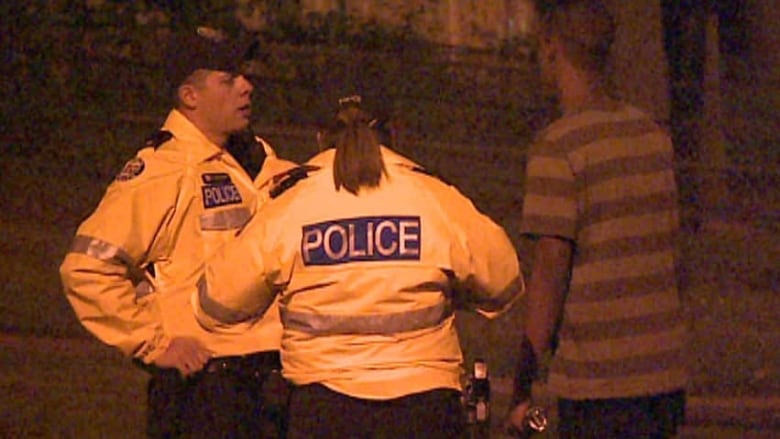Toronto police services board may overhaul TAVIS unit, sources say
Community leaders say appropriate, not extra, policing is needed in high crime areas

Toronto's Police Services Board may beplanning to overhaul a community policing unitset up 10 years ago to decrease violence and increase safety in high crime areas, sources have told CBC News.
The police services board, which meets Friday, is expected to make an announcement about the future of TAVIS, theToronto Anti-Violence Intervention Strategy.Sources said the unit could be renamed andmade more community friendlyin an effort to cut costs.
TAVIS, which wascreated in 2006,had its annual provincial fundingcut nearly in half last September. The ministry of community safety and correctional servicescut itsbudget from $5 million to $2.6 million, a cut that took effect at the beginning of this year.
Community leaders say what isneeded is appropriate,not extra, policing. They sayTAVIS has created tension between police and residents of neighbourhoods where the unit has been deployed. There have beenconcerns about carding in areas where TAVIS was working.
Toronto Police Association President Mike McCormack said TAVIS hasmade a difference.
"TAVIS is a unit that has been very effective, very efficient as far as surge policing is concerned, responding to different hotspots throughout the GTA. They have done some amazing work as far as reduction of crime and providing public safety."
McCormack said the question remains what kind of resources the city will makeavailable for crime prevention.
"I'm a huge supporter of community-based policing, but it's resource intensive policing where you have to have those police officers out there."
He said TAVIS, since its inception, has made 22,000 arrests. For example, he said it made a huge difference after it was deployed in 2012 following the Danzig Street shooting. Hesaid the unit has one of the lowest rates of complaints involving officers in uniform.
"We are very interested in where this board is going to go and where the city is going to go as far as cost cutting for police," he said.
Muna Mohammed, a Toronto resident who has lived in the Jane and Finch area for 15 years, said residents need officers who are committed to the individual communities they serve.
She said TAVIS police officers appear when there is trouble but they do not stay for long.
"They have to move from one community to another and they're here for like two months. What can you do in two months, right? You can't really build relationships in two months."
But Mohammed said a police presence is a good thing for a community. She said she would like police officers to create programs for children and youth instead of maintain a presence that can be viewed as intimidating to young people.
"Whether they are here or not, people are going to have issues, with them staying or with them leaving."
Barry Rieder, a United Church of Canada minister in the Jane-Finch community ministry who's worked in the area for 21 years, said if the police want to develop better relationships and build trust with a community, the police serviceshould assign one officer to a given area for a long period of time.
TAVIS deploys many officers in one area for short periods of time, he said.
"Having dedicated officers in a community is much more beneficial than having a whole group of people coming in for a short periods of time," hesaid.
"A lot of times, this community is over-policed. And so it's hard to get that right kind of balance. Instead of eight officers walking around in the community trying to develop relationships, you getone individual or two individuals assigned to the community who are there for the long term. That's a better deployment of resources."
Riedersaid appropriate policing is needed, not extra policing.
"When you have a couple of community police officers who are assigned to a community, they know who people are. And so, you don't have a bunch of strangers coming in and asking people, 'Who are you and what are you doing in this community?'"
A few years ago, he saidTAVIS officers landscaped a small front yard outside the tenant association and United Church ministry in the Jane and Finch area. He said that was helpful and made a difference.
Toronto police say TAVIS is "an intensive, violence reduction and community mobilization strategy intended to reduce crime and increase safety in our neighbourhoods."
Officers are assigned to areas where there has been an increase in violence; once the neighbourhood is safe, enforcement continues with increased collaboration with the community; after that, policing levels return to normal, with support given to an "empowered" community.
With files from Michelle Cheung












_(720p).jpg)


 OFFICIAL HD MUSIC VIDEO.jpg)
.jpg)



























































































